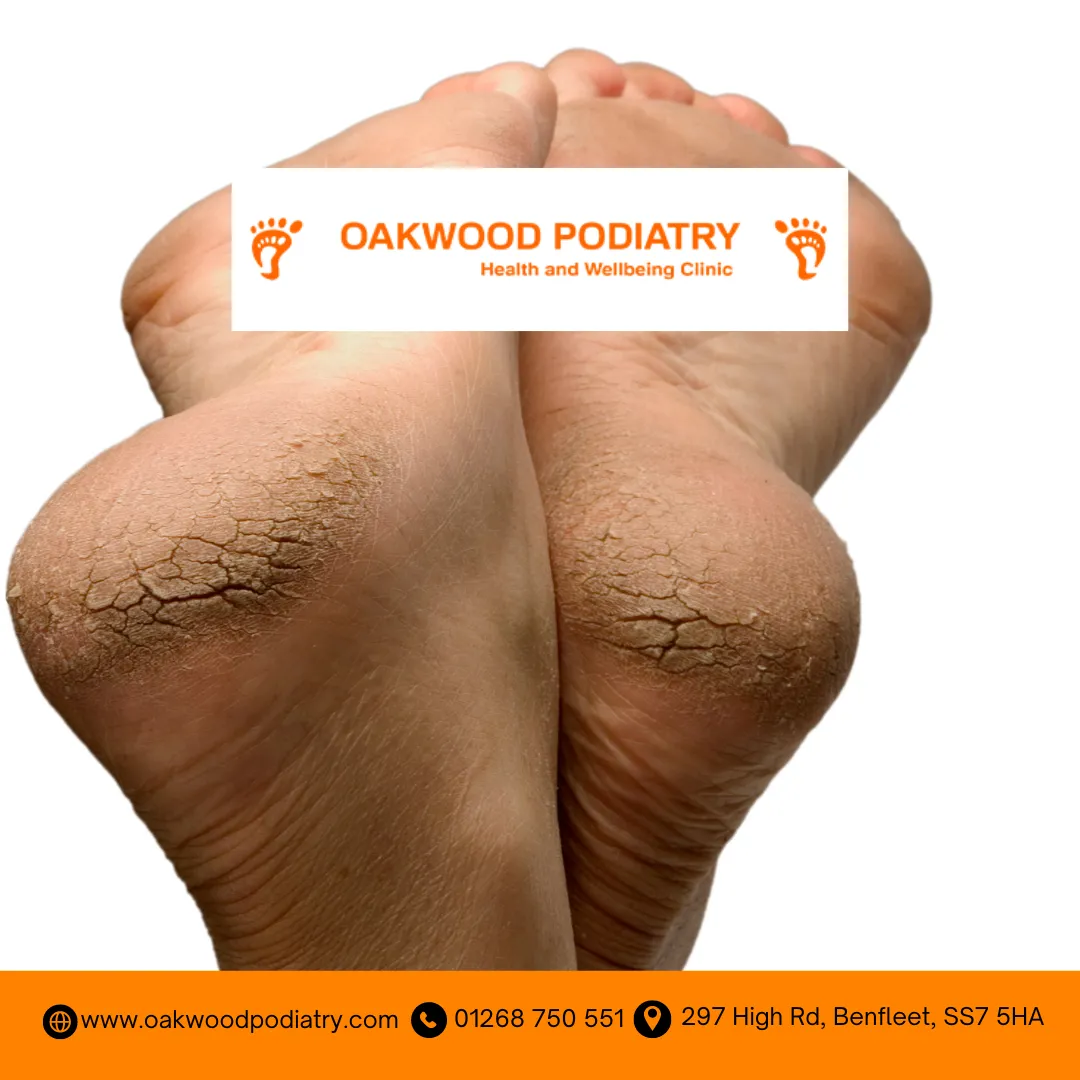
Caring for Dry, Cracked Heels
“Are you suffering from Dry, Cracked Heels? We understand this can be painful and even embarrassing to some. Don't suffer in silence, we can help ” - Oakwood Podiatry
Caring for Dry and/or Cracked Heels
Here at Oakwood Podiatry, one of the most common issues we come across are patients with Dry and/or Cracked Heels. We all lead busy lives, and caring for our feet can often feel at the very bottom of the list when it comes to our priorities, as Podiatrists we know more than anyone just how important caring for your feet can be. If you don't look after your feet, you can't expect them to look after you!
To keep it as sweet and simple as we can, if you have ever dealt with dry and/or cracked feet you will probably already be aware of the pain, discomfort and damage it can cause. Instead of our feet feeling smooth and silky soft, cracked heels and dry skin can instead feel rough, dry and painful frequently resembling a sandpaper like texture. If you leave this untreated, it can frequently lead to much more serious health complications.
Feet naturally lack oils which leaves them much more susceptible to dryness, this is also extremely common in colder weather. As a result of this, our feet require more attention than we may think to stay healthy. Dry and cracked heels are professionally known as heel fissures and we notice many of our patients come to us once they are either in great discomfort, or even embarrassed about the appearance of their feet.
Patients often only look to seek help once the problem has become advanced, but as Podiatrists we cannot recommend enough that you address the issue early to avoid more serious health conditions such as infection.

What are the Risk Factors for Cracked Heels?
ATHLETES FOOT - which can cause flaky, dry skin
DIABETES - which can lead to nerve damage and poor circulation levels
OBESITY - which can put more pressure onto your heels
DRY SKIN CONDITIONS - common conditions can include psoriasis and eczema
PROLONGED STANDING - on hard surfaces, this can often affect those with physical jobs or long commutes
FOOTWEAR - poor choices of footwear such as open backed sandals and flip flops can rub against the heel

WHEN SHOULD YOU SEE A PODIATRIST FOR HELP?
If your heels are either painful, bleeding or not improving with any of the above recommendations of home care it's time to see us. Call today on 01268 750 551, pop into our clinic and one of our friendly receptionists will be happy to help or even visit our website www.oakwoodpodiatry.com and book your appointment online today.



